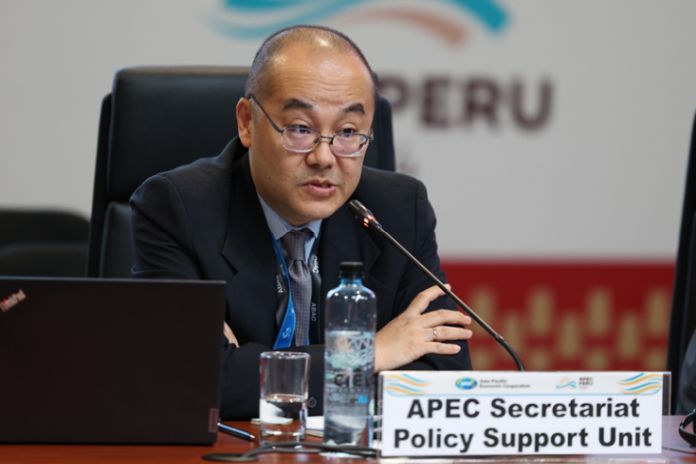By APEC Policy Support Unit
LIMA, Peru – The APEC region is navigating significant economic challenges as global conditions evolve. From moderate growth and aging populations to the urgency for energy transitions, APEC now faces a critical point that calls for strategic, cooperative reforms to build long-term resilience.
According to the latest APEC Regional Trends Analysis, economic and geopolitical factors are slowing growth in the APEC region. Trailing global growth, the region’s growth rate is expected to moderate from 3.5 percent in 2024 to 3.1 percent in 2025, and further slow to 2.7 percent over the medium term.
Risks including rising debt, heightened uncertainty, and geopolitical tensions pose further limitations to the region’s economic potential. Yet, innovative technologies lower inflation translating to higher consumption, and core structural reforms offer paths to strengthen productivity and ensure economic stability in the region.
The report projects inflation to decline to 2.9 percent in 2024 from 3.8 percent in 2023, with a further decrease to 2.4 percent over the medium term. Latest data show that more than half of APEC economies have adjusted their monetary policies, with some reducing interest rates in line with an easing inflation forecast. However, authorities will have to remain cautious of currency volatility and risks associated with abrupt rate cuts.
“Monetary tightening has reduced inflation, but as policy rates adjust, vigilance is necessary to manage exchange rate volatility,” said Carlos Kuriyama, director of the APEC Policy Support Unit (PSU). “Authorities will need to be cautious about drastically reducing interest rates to avoid significant depreciation of currencies vis-à-vis the US dollar,” Kuriyama added. “This cautious approach will help preserve macroeconomic stability.”
Trade has shown signs of recovery, bolstered by lower inflation and interest rates. Merchandise exports rebounded with modest growth in both value at 3.1 percent and volume at 3 percent, in the first half of 2024, with imports showing a similar trend.
However, protectionist measures pose a risk to growth. As of October 2024, trade restrictions in the region have reached 345 while trade remedies were higher at 944 measures.
“Protectionism, including increases in tariff lines, threatens trade growth and harms economic relations among APEC members,” explained Rhea C. Hernando, PSU analyst and co-author of the report. “A renewed commitment to cooperation on trade issues is crucial to maintaining APEC’s positive momentum in the face of evolving global challenges.”
Technological advancements present productivity opportunities but also demand increased investments in sustainable energy, according to the report.
“Investing in innovative technologies and transitioning to inclusive and sustainable practices are vital for APEC’s long-term resilience,” said Glacer Niño A. Vasquez, PSU researcher and co-author of the report. “However, the energy demand generated by new technologies poses a sustainability challenge, requiring investments in renewable energy and green policies.”
The report further highlights that increased demand from artificial intelligence (AI), low-emission, and other innovative technologies has driven up metal prices, keeping gold, silver and copper prices high as of September 2024. Gold, especially, is seeing price surges as investors increasingly view it as a hedge against global uncertainties.
Additionally, the region’s aging demographics are projected to challenge economic stability. Key recommendations include fostering longer workforce participation, adjusting pension systems, and promoting automation and gender equality in the workplace.
“The demographic shift toward aging populations is already exerting fiscal pressures across the APEC region,” noted Hernando. “Addressing workforce shrinkage and other economic impacts will require transformative approaches, from flexible work options for older individuals to gender equality initiatives that support economic participation.”
“To confront these intertwined challenges, APEC member economies must implement balanced monetary and fiscal policies, along with implementing core structural reforms,” Kuriyama concluded. “Collaborative efforts across the APEC region will support a resilient, sustainable, and inclusive economic future.”





